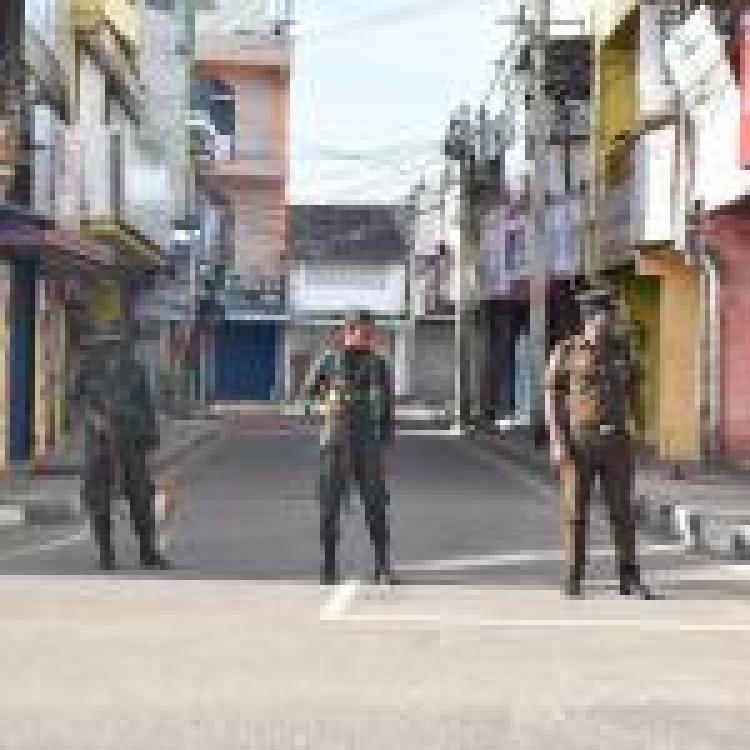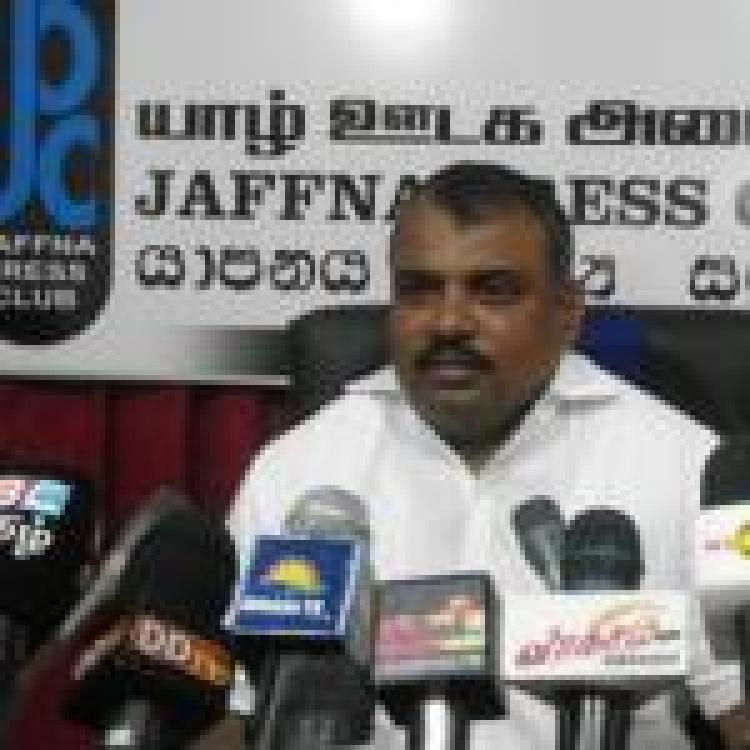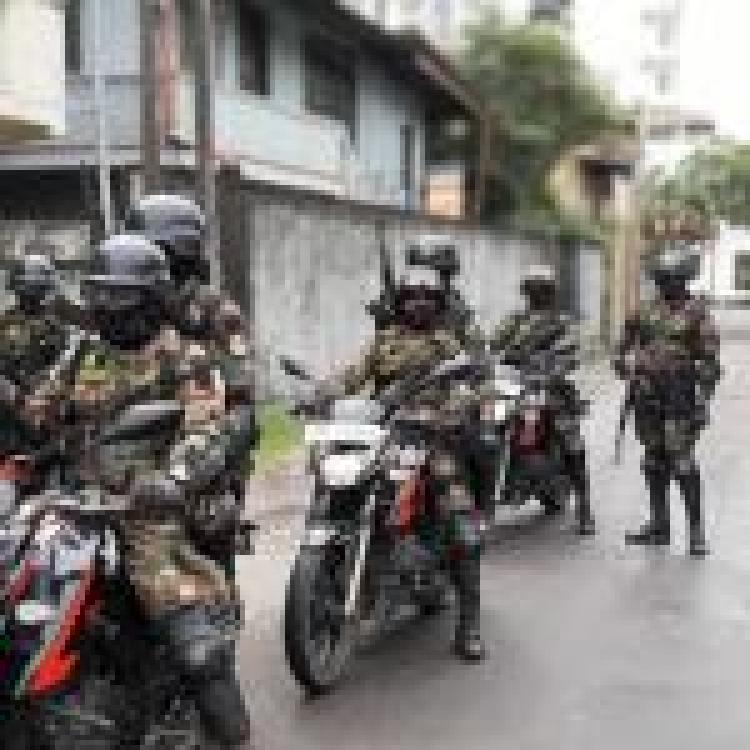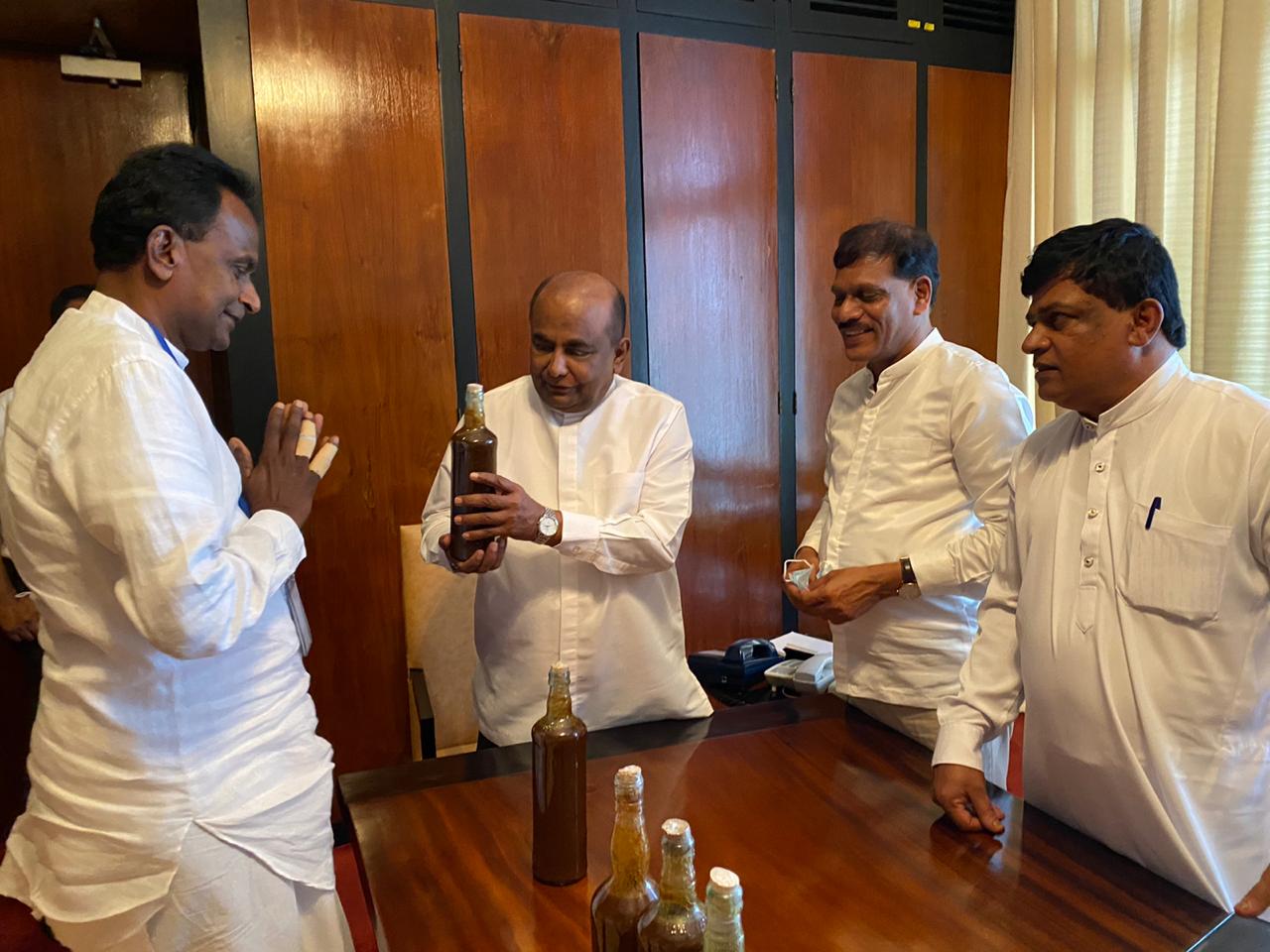
Thousands gathered in Kegalle outside an Ayurvedic centre earlier this month, disregarding COVID-19 regulations, to collect samples of an unapproved tonic that claims to “cure” the virus after several Sri Lankan parliamentarians publicly consumed and endorsed the tonic.
The tonic, which reportedly contains honey and nutmeg is made by Dhammika Bandara,who is neither a medical professional or registered Ayurvedic practitioner.
When interviewed, Bandara stated he stumbled upon the concoction after “studying the COVID disease.” Further the unregistered Ayurvedic practitioner claimed that taking a teaspoon of his concoction three times a day for three days will make a person “immune from COVID for the rest of their lives”.
The supposed cure has not been approved for public consumption and the Drug Authority and Food Authority of Sri Lanka’s Health Ministry have not recognized the product.
However, crowds began lining the streets in the Udumagama area in Hettimulla, Kegalle after Bandara announced 5000 samples of the concoction would be distributed free of charge.
Earlier this week, Bandara visited parliament, presenting the tonic to parliamentarians alongside the Minister of Indigenous Medicine, Rural and Ayurveda Hospital Development and Community Health, Sisira Jayakody. The two gave the tonic to speaker Mahinda Yapa Abeywardena’s promoting its ability to cure the COVID-19 virus.
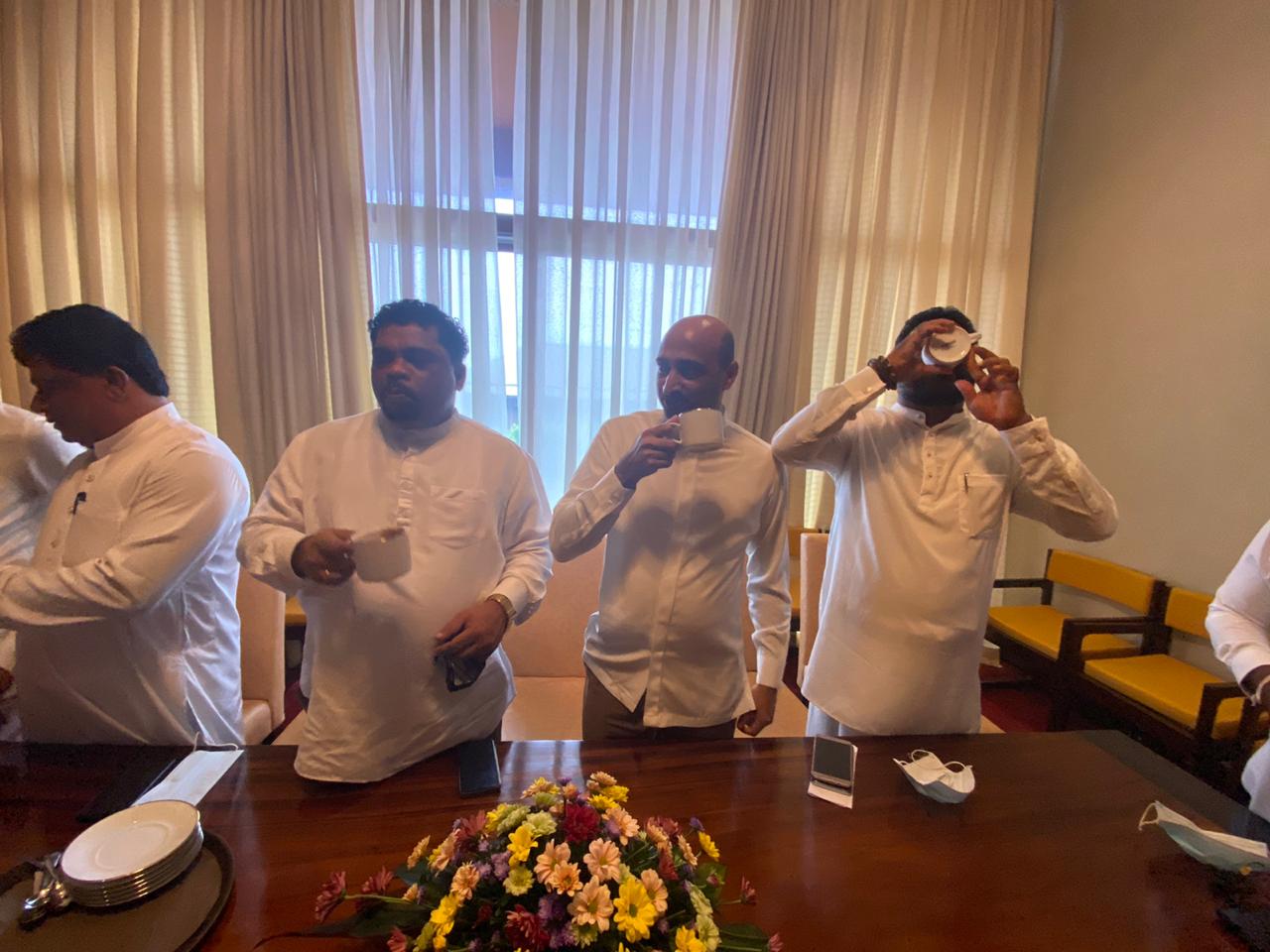
Parliamentarians consuming the tonic
The tonic gained popularity after pictures of several MP’s consuming it in the speaker’s chambers went viral, despite it having never been scientifically tested. The Ministry of Health has only recently appointed an expert panel headed by Professor Senaka Pilapitiya, Dean Faculty of Medicine and Allied Sciences at the Rajarata University to investigate Bandara’s tonic and report on their findings.
While many critics say the tonic may be harmless, they also warn that the danger lies in the minds of the people who believe in its unproven and untested efficacy. They believe that those who take the required dose and think they're immune to the virus will not take the necessary precautions such as wearing a mask and social distancing which will then pose the real threat to society.
Sri Lanka's Militarized response to Covid-19
Whilst thousands gathered in Kegalle, in the Tamil North-East, COVID-19 regulations have been used to police and restrict the Tamil people.
Tamil areas such as Mannar have been heavily militarized and in one of many instances, Sri Lankan police attempted to dismantle a protest by Tamils in Mullaitivu earlier this week, as villagers took to the streets to advocate for the release of land in their district. In this case, officers were filmed on camera attempting to pull down banners and clashing with the protestors. This same level of militarization and strong police presence were not seen for the thousands gathered in Kegalle.
Ambika Satkunanathan, former member of the Sri Lanka Human Rights Commission (SLHRC), went to Twitter stating, “Police officer says ppl cannot protest/gather due to #COVID19 & legal action will be taken against them. [People] say they have nowhere to go, no-one understands their problems & willing to die there. Is there no #COVID19 in Kegalle or Park Street Mews? Just asking.”

